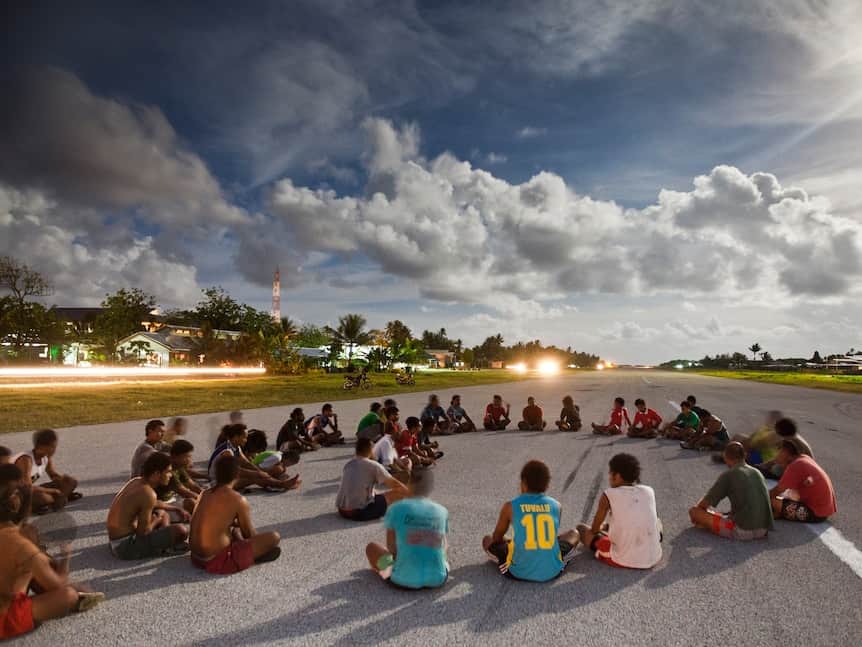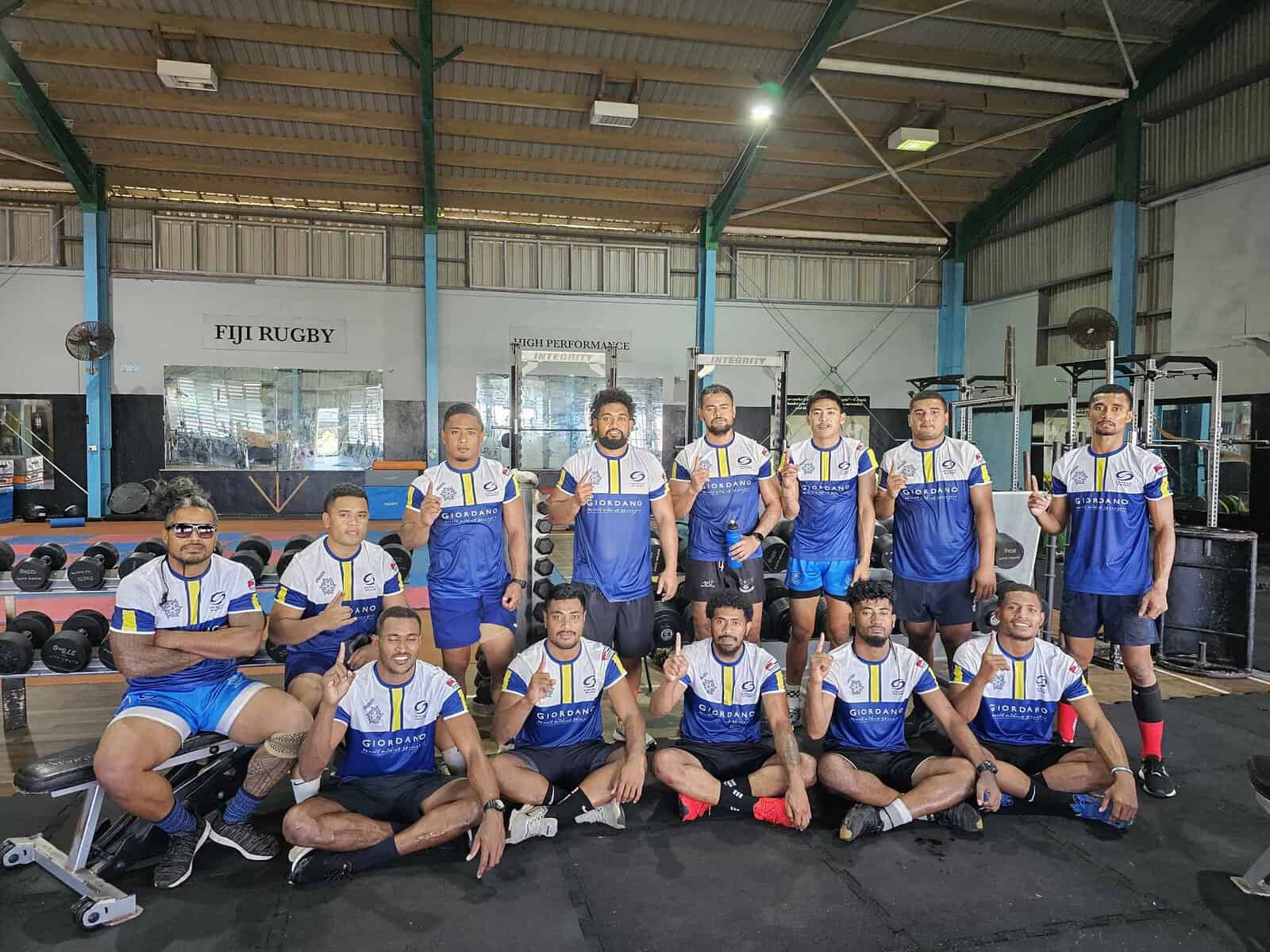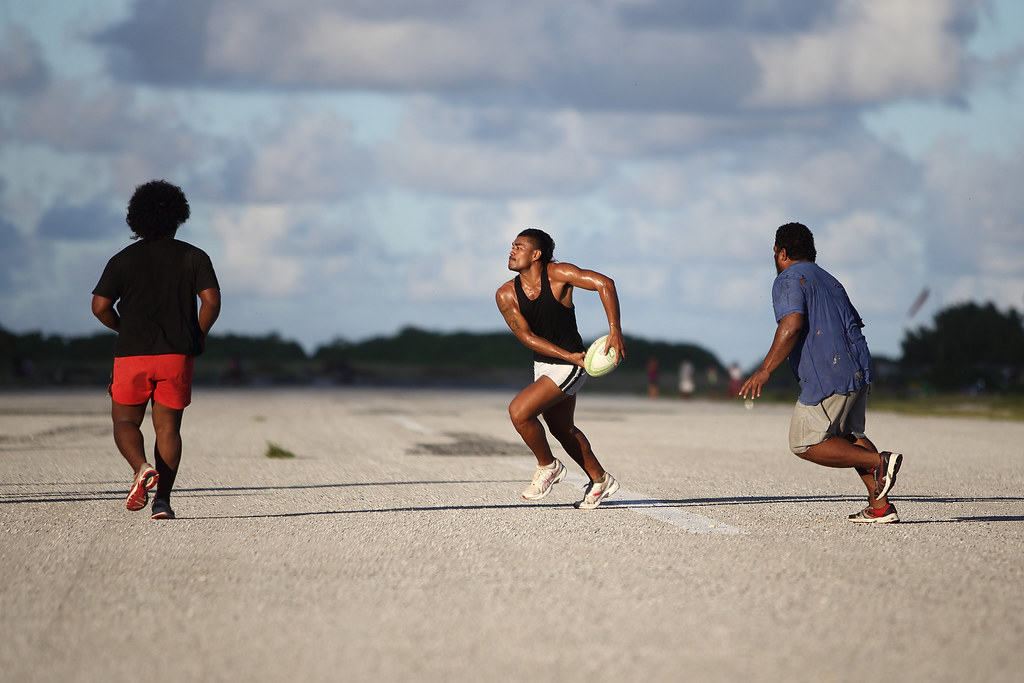Sevens rugby is still underdeveloped in Tuvalu while soccer is the sporting mainstay, but the tide is turning as sevens rugby picks up popularity in the lead-up to the 2023 Pacific Games in Honiara this month.
“I can see a lot of change because soccer is like the national sport for Tuvalu. Recently when we had a soccer tournament, we hardly saw a big crowd. But when we have rugby games, we can’t even go into the Sports Ground compound because it’s so full of people. So, we started to notice the engagement of the public with the sport,” says coach, Alama Elisaia.
Sevens rugby was first introduced to Tuvalu in 2007, so it’s still a young sport there. “In 2008, we started forming some teams but at the moment, we are still at infancy level, we are still young with our rugby,” says Elisaia.
Rugby administrators worked hard for coaches to gain accreditation with Oceania Rugby so they could develop the sport properly.
“Back in the islands, we threw trials for the development of rugby. We have included the ‘get into rugby programme’ in all schools as part of their curriculum as a way forward for rugby.”
“When I started to attend the World Rugby and Oceania Rugby courses, that is when I noticed that rugby back home is still at the infancy level. We needed to get it to a higher level especially in terms of competition. We needed to take them back down to basic skill level training. Some of the boys play well in club games but their basic skills are still lacking,” says Elisaia.
Grassroots rugby development has not been easy. There is a unique set of challenges in taking it to the fertile ground of schools.
“There are nine islands in Tuvalu and each island has its own school. So, it’s pretty hard to get the schools to play against each other because they have to travel by boats. For some, they have to travel more than 24 hours on the boats to the other islands.
“We only have two secondary schools; one is on the main island and the other one is a boarding school on the other island. These two schools are very active in rugby. They have their own internal tournaments but we’re still looking for funds for them to come and play against each other.

What we are doing is, we are trying to introduce ‘get into rugby’ into all the schools, then we’ll try to hopefully have a tournament like the Deans in Fiji – so they can bring their Under-18 to the main island, have one tournament and they can go back to their own islands”, says Elisaia.
In club level rugby: “There are eight clubs, a few from the outer islands but they are all based on the main island of Funafuti. We have a tournament called the Independence Cup. That’s the time when some of these islands bring their teams over to compete.”
Other challenges include the need for proper facilities and equipment, and especially a full-sized rugby ground.
“We only have one playing ground called Tuvalu Sports Ground,” says Elisaia.
“Its a standard ground but normally we train at the airstrip right on the runway; that is the place where we train [for] all kinds of sports.”
Looking for funds has always been a challenge.
“It has not been easy. We need to have some funds to go to these places to compete and we are waiting for some of our sponsors to help us.
“We do need support and funds. We are also concerned about our players. Not just for rugby but their individual welfare. That’s the only thing that will keep our boys together; to have some money to pay them so they can contribute to their families back in the islands.”
Team manager, Maika Moulongo, also shares his thoughts.
“We know the common challenge for all is to find the money to create something that we hope for. It’s very hard to create pathways. As we all know, rugby is an inclusive sport but it is very hard for us to maintain our progress with the limited funds we have.”
The government of Tuvalu is also getting alongside the sport.
“Rugby is not a major sport in Tuvalu but lately, we are getting there. The government and the stakeholders have seen our improvement in rugby”, says Moulongo.
“This year, we had our first outing for the 15s where we played against Nauru. They’ve really supported us by funding our flight tickets to places. We see our government is really trying to upgrade all sports. Not only rugby but all sports. Before they were just focused on education but now it’s more balanced; education and also sports”, says coach Elisaia.
The Tuvalu rugby 7s team has been camping in Fiji for two months to help with their Pacific Games campaign.

“At the moment, preparations are pretty good. The boys are happy and we are trying to do our best. That’s the main reason we came over to Fiji to prepare. The club games back in the islands are very different from what we experience here and we want to learn from the best”, says Elisaia.
“We thank the Fiji Rugby Union for allowing us to come and use their facilities and grounds to train. FRU has been really helping us and we appreciate their support, especially for us smaller nations who are also trying to grow and develop in rugby.
“We are looking forward to showcasing some of our new boys there. The players from our previous teams have all retired, so these are all new players. I’m very keen to showcase their talent and to learn as much as we can from our rugby brothers of Oceania.”
Captain Simeon Taasi provides some insights into his team’s preparations: “The boys are excited to compete in the Pacific Games, [and] we’ll be playing in Australia for the Oceania tournament. We are excited about this opportunity.”
“One of the reasons we came to play in Fiji is to gain experience in what rugby is outside of our home ground. We’ve come to experience that in Fiji and it has been a big education and learning for us as players,” says Taasi.
“Training has been good. We’ve been training in the rain and under the hot sun with no days off and we are doing our best to get to that level of fitness in order to compete with the big teams in the Pacific Games. So far, it’s been good. No injuries and everyone is healthy. We can’t wait to go out there and showcase our talent.
“We’ve managed to reach the Oceania tournament and maybe we can break down those barriers and let people know that we can compete at this level. We just need to take the right steps and sacrifice to come and showcase our talent. We never know, we just might achieve what we are aiming for.”
